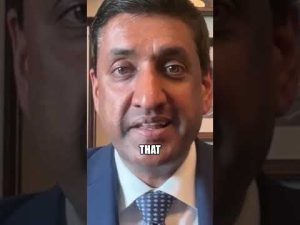Americans often find themselves bearing the brunt of insurance companies’ frustrating bureaucracies. No one relishes the thought of dealing with endless phone menus or the vague explanations of what is and isn’t covered. This has led to a pervasive atmosphere of dissatisfaction with the healthcare industry as a whole. However, a curious trend emerges when we take a closer look at public opinion regarding personal healthcare experiences. The data shows that many Americans are surprisingly satisfied with their own healthcare services.
To break this down, a recent analysis revealed that when asked to rate their healthcare, a substantial 71% of respondents rated the quality as excellent or good. This suggests that, despite the national dissatisfaction with healthcare systems—often branded as inefficient and overly complicated—people recognize the value of their personal healthcare experiences. In other words, while Americans may grumble about the healthcare system’s inefficiencies, they seem to appreciate the service they receive from their own doctors and healthcare providers.
A closer inspection of the numbers reveals that a solid 65% of survey participants feel their coverage is either excellent or good. This indicates that, at the individual level, many people find that their personal insurance fits their needs. They don’t want to lose the doctors they trust, the care they receive, or the treatment options available to them. So, what does this mean for the national healthcare debate? It illustrates that, while the structure may be flawed, when it comes to their own experiences, people often feel fortunate.
Furthermore, the cost of healthcare isn’t as off-putting as one might expect. A surprising 58% of Americans reported satisfaction with the cost of their healthcare services. This statistic further underscores the disconnect between the abstract concept of the healthcare system and the real-life experiences of individuals. Many Americans seem to find value even amid broader critiques of affordability, suggesting that solutions may be more complex than some propose.
This phenomenon reveals a crucial insight for policymakers. The dissatisfaction that fuels calls for sweeping reforms often overlooks a critical aspect of the conversation: personal satisfaction. When politicians propose radical changes, it’s important to consider whether these changes align with the desires and needs of the average American. Instead of focusing solely on overhauling the entire system, perhaps the emphasis should be placed on improving the aspects that are failing while recognizing those that are working well.
In summary, the stark difference in how Americans regard their personal healthcare versus the overall system highlights a significant gap in the current healthcare discourse. While most Americans might agree that dealing with insurance companies is as enjoyable as a root canal, they are generally satisfied with their own healthcare. This alignment of perceptions suggests that any future reforms should be approached with caution, focusing on enhancing the good while addressing the bad. After all, if Americans value their healthcare experiences, it might just be worth listening to what they have to say instead of insisting on a one-size-fits-all solution.







